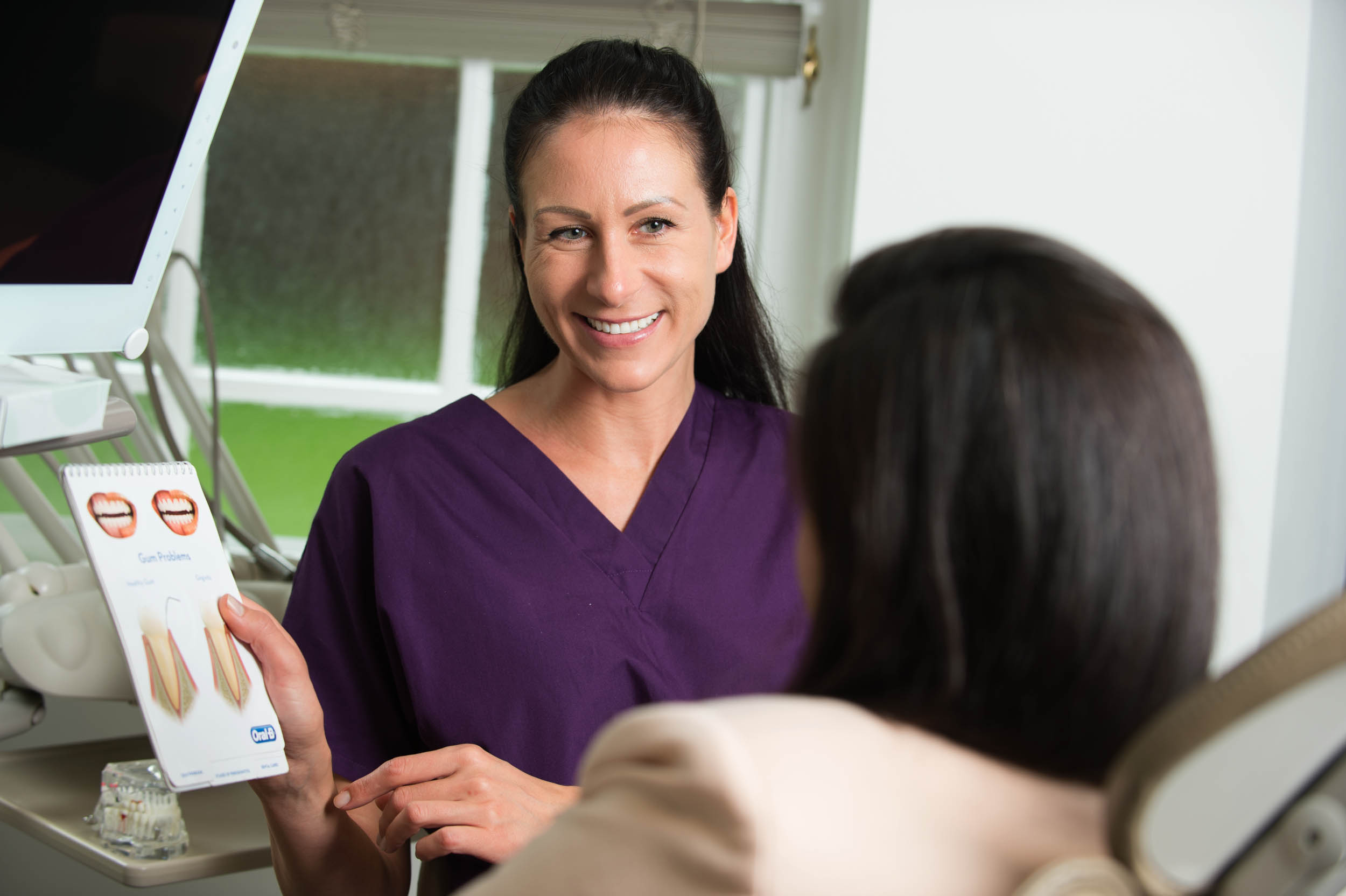We Asked You What You Wanted To Know About Oral Health
Ask Justina…

Over the past month we randomly surveyed our patients to find out what they really wanted to know about oral hygiene. Here are the top 5 queries you raised…
- What can I do if I have sore or bleeding gums while at home?
If you have sore, swollen gums or if they bleed when you brush your teeth it might be the early sign of gum disease. It is vital to make an appointment to see your dental hygienist or a dentist for a thorough gum health examination. Your clinician can then advise you on the best course of action to reduce and/or reverse the effects of gum disease. It is important to maintain as good oral hygiene as possible until you see you your hygienist or dentist.
- I brush my teeth twice a day and I still wake up in the morning with bad breath. What can I do to help this?
Poor oral hygiene, gum disease, tooth decay, or mouth infections can be causes of bad breath. Diet as well as tobacco and alcohol use may also be factors in causing bad breath. First of all it is important to visit your dental hygienist or a dentist if you develop a bad breath. Your dentist or dental hygienist will be able to find out the main cause of bad breath and help to eliminate it.
- My kids hate brushing their teeth. What can I do to encourage my kids to take better care of their teeth?
Let them copy you. You can buy them the same colour toothbrush as you have, which maybe more entertaining for them. You can also let your kids try brushing your teeth and then you can brush theirs to make sure they are actually clean. If you make it look like fun, the kids will want to do it 🙂
It is also good to get your kids used to visiting the dentist and hygienist from early on. This will get your child used to the noises, smells and surroundings and prepare them for future visits. It will also give them the chance to focus on learning about their teeth in an appropriate environment.
- There are so many electric brushes available now. Which one is the best?
In my opinion there is no best brush. It all depends on patients’ needs and individual choices.
Brushing with an electric toothbrush can help you keep your teeth and gums clean and healthy. It is important to make sure you choose the right one. Prices can vary from as little as £10 to over £200. They can be rotating, pulsating or sonic brushes. So how do you choose the right one? It depends on:
- Expert recommendation to suit your teeth from your hygienist or dentist.
- Size – make sure the brush head gives you easy access to all surfaces of your teeth.
- Effectiveness – rotation/oscillation is traditionally the most effective for brushing but new vibrating or sonic movement brushes have been proven to be very effective as well.
- Likability – if you enjoy using your toothbrush, you are more likely to use it all the time.
- Battery life – if you travel a lot battery life could be very important.
These days, you can get electric brushes with wifi or blue tooth connectivity. These are meant to increase your engagement in your tooth brushing, prompting you on things like brushing time and pressure. These are all well and good, but it does not replace the self motivation needed to ensure you are brushing you teeth properly.
- I do a lot of exercise and sports and consume high sugar foods and drinks to replenish my energy. How can I best protect my teeth?
Drinking sugary drinks and consuming high sugar foods can contribute to tooth decay. However, those who consume more sugar than average can still maintain healthy teeth. Here are a few tips that can help prevent cavities for sugar lovers:
- Drinking plenty of water and ensure your mouth is not dry. Saliva or water neutralises the acid on your teeth (particularly after eating/drinking sugars).
- Brushing your teeth more often especially after consuming sugary drinks or snacks or at least make sure to rinse your mouth out with water.
- Use fluoride mouth rinse to remove as much sugar as possible.
- Chewing sugar-free gum can help you increase the production of saliva and removing any sugar coating on your teeth.
- If possible choose less sugary snacks like fresh fruits.
The key to protect your teeth from cavities after eating sugary foods is simply to prevent the mouth from remaining coated in the acid-forming sugars found in sweets and energy drinks after eating/drinking.
For more information about hygiene treatment at Aura Dental, check out our website at auradentallondon.com or get in contact to book your hygiene appointment with Justina










